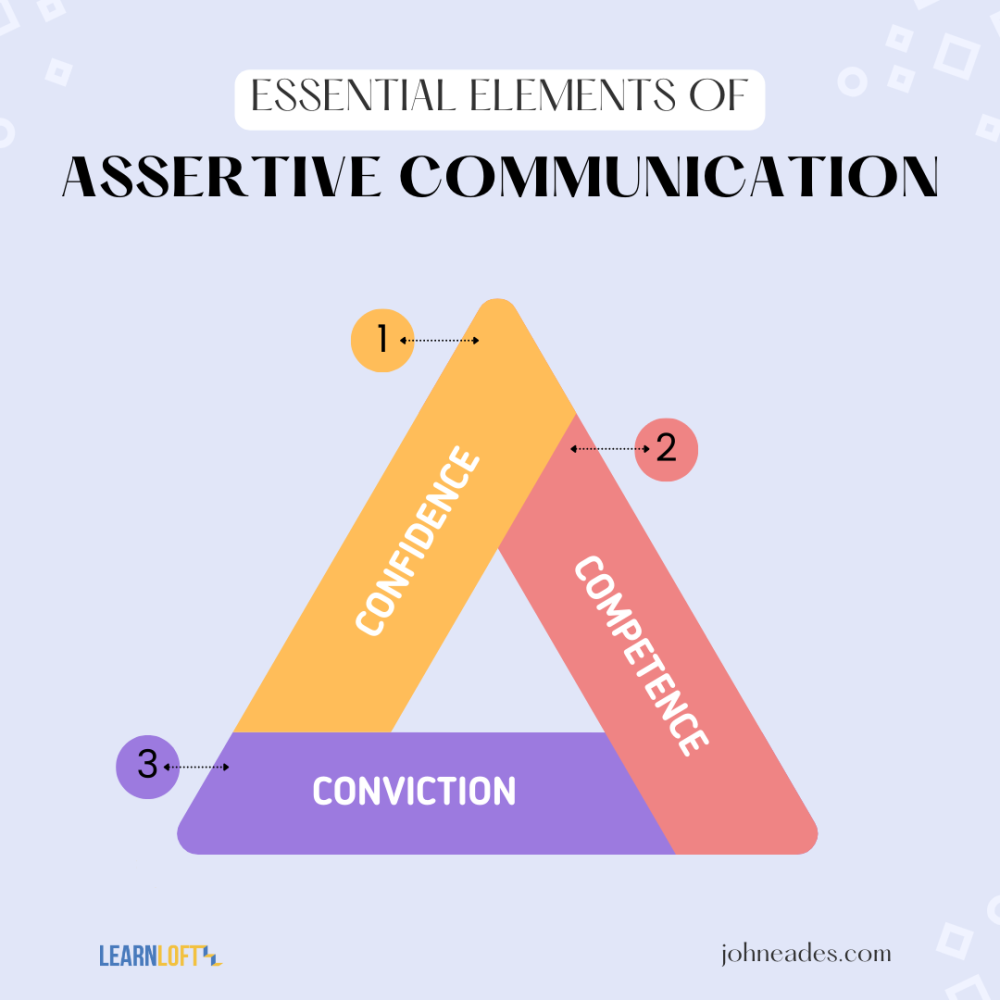
Why Being More Assertive Makes You a Better Leader
Effective leaders set a team's tone, direction, and sense of urgency.
While great leaders possess all kinds of skills and capabilities, one needs to be discussed more: assertiveness.
It's difficult to say precisely what percentage of leaders lack this skill, but research suggests that 70% of employees feel their leaders lack assertiveness in their communication. This is an issue because assertive leaders are 40% more likely to achieve their team's goals. Clearly, employees desire powerful communicators, which leads to higher performance levels.
To better understand assertiveness, it's often easier to recognize what it isn't. Leaders lacking assertiveness tend to be passive, aggressive, or passive-aggressive.
-
Passive - This typically shows up when a leader avoids conflict and isn't sure of themselves. They dance around critical topics and struggle to get to the heart of what they want or need to say. Often, a sense of fear, lack of confidence, or uncertainty is present.
-
Aggressive - An aggressive leader overshadows others by dominating the conversations. They tend to be combative, argumentative, and use intimidation to get their way. When someone is aggressive in their communication, they confuse it with being assertive.
-
Passive Aggressive - These leaders tend to be assertive on the surface, but they have an ulterior motive. They use sarcasm or deflections to convey their true feelings without directly confronting the issues. It can be challenging to spot passive-aggressive communication initially, but eventually, the truth emerges.
The best leaders aren't aggressive, they are assertive.
It's easy to point the finger in judgment at other people who are more passive or aggressive in their communication style, but we all have been guilty of communicating in one of these ways.
What is Assertiveness?
Assertiveness is the ability to express yourself honestly and respectfully. It involves clearly, concisely, and conclusively stating your needs, feelings, or perspective while respecting others. Most importantly, it's a skill that can be learned and developed.
Assertive communicators blend three essential elements.

Confidence: The myth around assertive leaders is that they came out of the womb like that. The reality is assertive communication is born out of belief. Confidence comes from within, and it's built through consistent daily repetition. One of my mentors says, "Repetition is the mother of learning. Repetition is the mother of skill."
Repetition is the mother of learning. Repetition is the mother of skill.
Competence: Being competent means you have the ability to do something well. However, when it comes to assertive communication, it continues. It also means you possess wisdom about the topic or strategy you are speaking about. Whether that competence was developed through studying, experience, or some combination of the two, knowing what you are talking about is required.
Conviction: Leaders with a strong sense of conviction or purpose are more likely to communicate with passion. It's the leader directly impacted by an event, and their life's purpose is to solve the problem. It's the leader who knows the mission they or their team is on and are unwilling to stop until it's achieved.
The best leaders know the mission they are on and aren't willing to stop until it's achieved.
What Assertiveness Sounds Like
Let's assume for a moment that you have confidence, competence, and conviction. What does assertiveness sound like? In the simplest terms, it might sound something like this if you are inspiring your team to give their best effort:
Say How You Feel…" I feel excited about the opportunity in front of us."
Describe What You Have Learned, Experienced, or Visualized... "Based on the market conditions moving towards us and the work ethic on this team..."
Say What You Need, "I need everyone's most committed effort for five straight days to determine if we need to make pivots or changes."
Closing
It would be impossible to know if you are confident, competent, or convicted enough to communicate assertively. However, assertiveness is a skill that can be learned and developed. Get in the habit of saying how you feel, describing what you have learned, and saying what you needYou will be on your way to seting your team's tone, direction, and sense of urgency.
Trending
-
1 Jocko Willink's Inspirational Life & Net Worth
Aaqil Ashraf -
2 How Art Shapes Culture and Reflects Human Experience
Luke Fitzpatrick -
3 Meet Felix Williams and Maria Arthuer: The Parents of World Class Winger Nico Williams
Felix Yim -
4 Kai Cenat's Dad and the Enduring Public Interest
Aaqil Ashraf -
5 London Tube Stations Closed as Workers Stage Strikes
Mihir Gadhvi





Comments